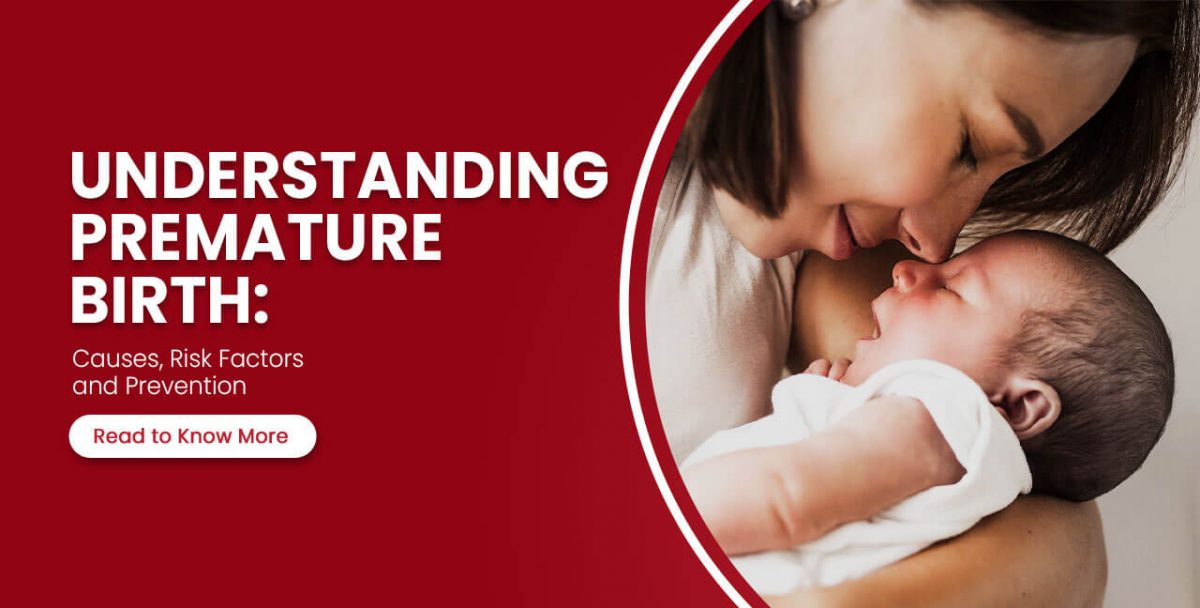
Premature birth, also known as preterm birth, is a significant public health concern worldwide. It occurs when a baby is born before completing 37 weeks of gestation. While medical advancements have improved the survival rates of preterm infants, the risk of complications remains high. Understanding the causes, risk factors, and prevention strategies is crucial for expecting parents and healthcare professionals alike.
What are the Causes of Premature Birth
Several factors can contribute to premature birth, and in many cases, the exact cause remains unknown. Some common causes include:
Multiple Pregnancies: Women carrying twins, triplets, or more have a greater chance of experiencing premature birth. The increased strain on the uterus and the body’s response to multiple pregnancies can trigger early labour.
Infections and Chronic Conditions: Infections of the reproductive or urinary tract, as well as chronic conditions such as diabetes and high blood pressure, can increase the risk of premature birth. Managing these conditions during pregnancy is crucial to reduce the likelihood of preterm delivery.
Uterine or Cervical Issues: Abnormalities in the uterus or cervix may contribute to premature birth. These structural issues can affect the ability of the uterus to maintain a full-term pregnancy.
Placental Problems: Complications with the placenta, such as placenta previa or placental abruption, can lead to preterm birth. The placenta plays a vital role in providing nutrients and oxygen to the developing fetus, and any disruption can jeopardize the pregnancy.
Maternal Lifestyle Choices: Certain lifestyle factors can increase the risk of premature birth. Smoking, drug use, and excessive alcohol consumption are known to contribute to preterm delivery. Adopting a healthy lifestyle during pregnancy is essential for the well-being of both the mother and the baby.
Risk Factors for Premature Birth
While some factors contributing to premature birth are beyond an individual’s control, certain risk factors can be identified and managed. Recognizing these risk factors is essential for early intervention and prevention. Some common risk factors include:
Previous Preterm Birth: Women who have previously experienced premature birth are at an increased risk in subsequent pregnancies. Close monitoring and early intervention can help manage this risk.
Short Cervix: A shorter than average cervix may increase the risk of premature birth. Regular monitoring and interventions, such as cervical cerclage, can be implemented to reduce the risk.
Infections and Chronic Health Conditions: Women with infections or chronic health conditions, such as diabetes or hypertension, should work closely with healthcare providers to manage these conditions throughout pregnancy.
Teenagers and Women Over 35: Both teenage pregnancies and pregnancies in women over the age of 35 are associated with a higher risk of premature birth. Adequate prenatal care and monitoring are crucial in these age groups.
Multiple Pregnancies: Premature birth has a higher chance of occurring in cases where women are carrying twins, triplets, or more. Close monitoring and early intervention can help manage the challenges associated with multiple pregnancies.
Premature Birth Prevention Strategies
While not all premature births can be prevented, certain measures can be taken to reduce the risk. These include:
Prenatal Care: Early and consistent prenatal care is crucial in identifying and managing potential risk factors for premature birth. By following scheduled check-ups, one can ensure better overall health as the health of the mother as well as the fetus is closely monitored.
Healthy Lifestyle Choices: Adopting a healthy lifestyle before and during pregnancy can significantly reduce the risk of premature birth. This includes maintaining a balanced diet, staying physically active, avoiding harmful substances, and managing stress.
Managing Chronic Conditions: Women with pre-existing health conditions should work closely with their healthcare providers to manage these conditions during pregnancy. Proper management can help minimize the risk of complications.
Avoiding Multiple Pregnancies: While not always within an individual’s control, assisted reproductive technologies should be used cautiously to avoid multiple pregnancies whenever possible.
Education and Awareness: Educating expectant parents about the signs of preterm labour and the importance of seeking prompt medical attention can contribute to early detection and intervention.
In conclusion, understanding premature birth, its causes, risk factors, and prevention strategies is vital for ensuring the well-being of both mothers and infants. Through proactive prenatal care, healthy lifestyle choices, and awareness, the global healthcare community can work together to reduce the incidence of premature birth and improve outcomes for preterm infants.

 Call-an-Ambulance
Call-an-Ambulance



